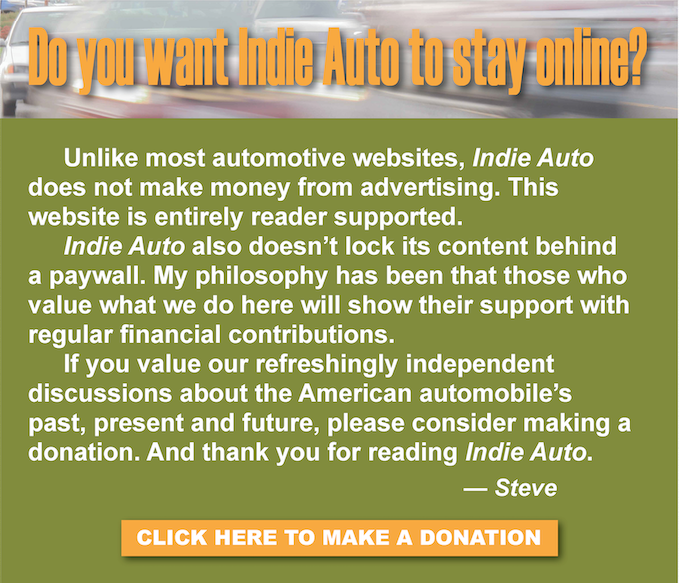
Like a number of other auto history websites, Indie Auto often reposts content. However, I do so in a decidedly different way. Whereas others rarely modify their articles when reposting, I will almost always update or even expand a story in meaningful ways.
For example, both of this week’s feature stories (on the 1959 Studebaker and late-60s fastbacks) received substantial revisions to their text and graphics. My goal was to deepen the analysis as well as make the visuals more interesting. I also did a fair amount of editing in order to improve the clarity of my prose.
I could have cranked out two new (albeit smaller) stories in the amount of time I spent on these older ones. And that might have generated more page hits since the Internet seems to have an insatiable thirst for new content. However, the whole point of Indie Auto isn’t to maximize readership, but rather to help advance American automotive history. I think I can best do that by treating Indie Auto articles as living documents.
Why is that useful?

Print-based auto histories can perpetuate errors
Despite the rise of the internet, the auto history field still relies heavily on print-media sources. The problem is that even the best books and magazines will have omissions, misinterpretations or outright errors. Revising a published work is expensive so it rarely happens. The result is that problematic analysis can be perpetuated for years — if not decades — without correction.
Whatever else one can say about the Internet, a big advantage is that we can easily change content. So when an Indie Auto reader points out a fact error, I will quickly fix it. When I come across new information, I will add it to a story. Or when the comment threads generate an important new way of looking at a controversy, I will integrate it into the relevant article.
Also see ‘Wheel spinning happens when car buffs and scholars don’t collaborate’
I suspect that this isn’t done all that much at other history websites because it takes time. And with the commercial media, time is money. Maximizing output can become more important than quality of analysis.
That doesn’t mean Indie Auto is immune to financial pressures. I don’t accept real advertising in order to avoid having to crank out a lot of clickbait. Indie Auto’s survival thus depends entirely on reader support. If not enough of you chip in, then Indie Auto goes away. So if you think this website provides a uniquely valuable service, please consider making a donation here.
Share your reactions to this post with a comment below or a note to the editor.






Be the first to comment